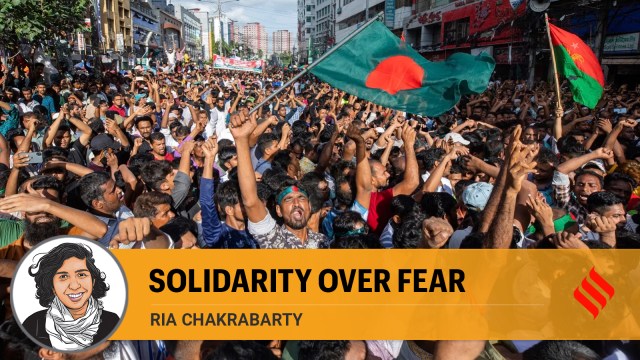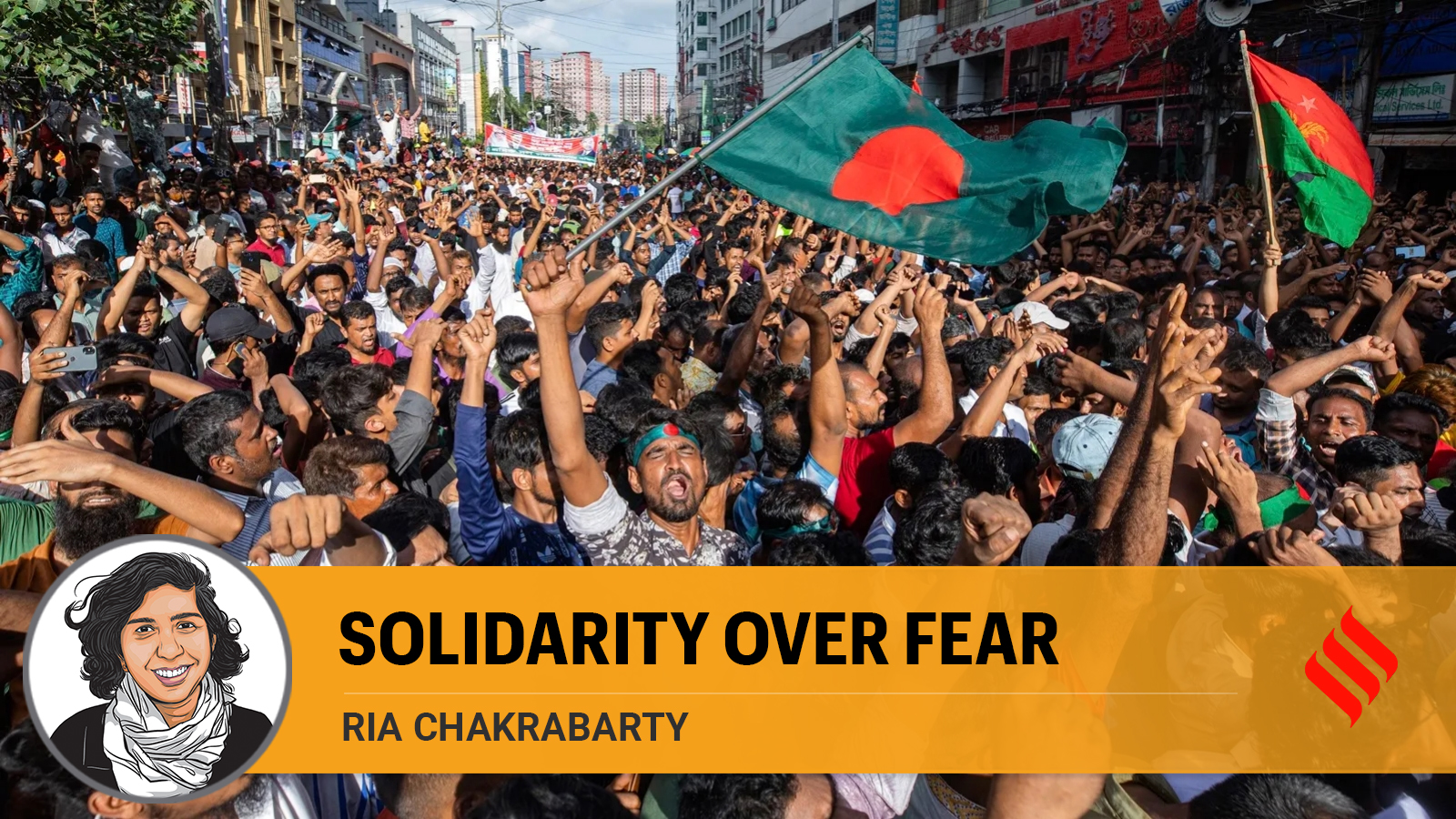
By Ria Chakrabarty
On August 5, when I saw the news that Sheikh Hasina was forced to resign, as a Bengali Hindu, I experienced two emotions in immediate succession: Joy at what student protesters had achieved and fear for what could happen to Bangladeshi minorities, especially Hindus. These fears were not unfounded. Bengali Hindus, in both India and Bangladesh, know that over the decades, when East Bengal has descended into chaos, Hindus have been in the crosshairs. That night, predictably, reports started emerging that extremists took advantage of the power vacuum Hasina left behind to attack minority communities. As Human Rights Watch noted, political actors took advantage of the power vacuum to attack their opponents, and extremists took advantage to attack religious and ethnic minorities.
In response, Bangladeshis organically began defending Hindu temples, Christian churches, and other minority community institutions. Led by the student protesters, Bangladeshis, just as they did in 1971, stood shoulder to shoulder to protect all communities and the idea of Bangladesh. The student protest leaders and their chosen interim government leader Mohammad Yunus have insisted that the next government must be a secular democracy that respects the rights of all, including minorities. Hindus have been crucial to the student protest, as Bengali Hindu students have always been in the history of East Bengal.
As Bangladeshis celebrate another freedom struggle, minorities are demanding that they be included in this new age of liberation. They want fundamental reforms to the Bangladeshi government, including a Minority Affairs Ministry and a 10 per cent reservation for minorities in Parliament.
But Indian Hindus have not taken the time to understand and listen to Bangladeshi Hindus. Some have suggested that Sheikh Hasina was the only person to guarantee Hindu existence in Bangladesh. To suggest that authoritarianism is necessary or to suggest that Bangladeshi Hindus are helpless is a deep disservice to a community that is integral to the fabric of Bangladesh and broader Bengali society. Bangladeshi Hindu students fought and died for this student protest movement alongside hundreds of their peers, as they have fought and died for the rights of all Bengalis in the Bengali Language Movement, the Six Point Movement, the Liberation War, and subsequent fights to fulfill the promise of secular democracy.
However, Indians, and Hindus in the diaspora, have been bombarded with appeals to protect helpless Hindu Bangladeshis from genocide. The far-right has used AI images of rows of dead Bangladeshi Hindus to ask the global Hindu community to keep all eyes on Bangladesh. Far-right Hindu diaspora organisations which have no presence in the Bengali community, are using our Bangladeshi brothers and sisters’ fears to suggest that Sheikh Hasina was the only one protecting Bangladeshi Hindus from genocide. One Twitter account compared Muhammad Yunus to Aung San Suu Kyi. Unlike Suu Kyi, who over her many years in power, supported the military in its genocide of the Rohingya, Yunus has roundly rejected anti-minority violence. In fact, Yunus has pleaded for an end to the anti-minority violence in his one week in power. At Dhakeshwari Temple, Bangladesh’s national Hindu temple, Yunus affirmed his dedication to protecting the rights of all. The current Bangladeshi political leadership has shown remarkable compassion and intentionality, unlike leaders interacting with protesters in the rest of South Asia.
Indian Hindus must take their lead from the response by leaders in Bangladesh calling for support for minorities. Non-Bangladeshi Hindus need to be far more responsible in addressing what is happening to our brethren in Bangladesh. Far-right misinformation drowns out real concerns by Bangladeshi minorities about their safety. Indian misinformation actually makes Bangladeshi Hindus even more vulnerable, as their fears get dismissed as foreign propaganda.
Instead of consuming Indian hysteria that is designed to whip up violence against Indian Muslims, Indian Hindus should listen to the thousands of Bangladeshi Hindus pouring into the streets to demand structural changes to the Bangladeshi government. As protest leader Bipra Prasun Das noted, Bangladeshi Hindus need other Hindus to hear their concerns with real empathy. Bangladeshi Hindus do not deserve to be used as political cudgels to divide Indians along communal lines. Hindus owe it to each other to listen rather than use each other’s stories for their own selfish needs.
Bangladeshi Hindus are not helpless. They are not asking outside powers to save them. They do not want the return of authoritarianism. And they certainly do not want to leave their homes. What they need is for their fellow Hindus to amplify their concrete demands to ensure that Bangladesh is truly an inclusive, secular democracy that serves every Bangladeshi, regardless of faith, caste, or ethnicity.
The writer is senior policy director at Hindus for Human Rights, an organisation that advocates for human rights in South Asia and the Hindu diaspora



